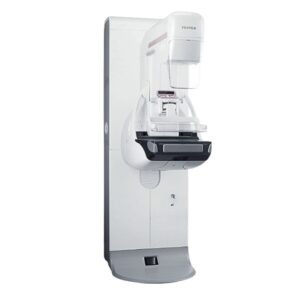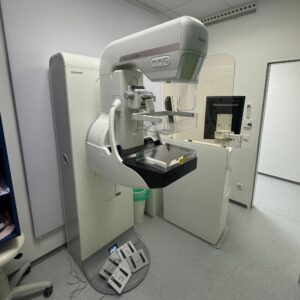Siemens Biograph mMR PET/MRI scanner for precise hybrid imaging
The Siemens Biograph mMR PET/MRI scanner combines the molecular imaging of positron emission tomography (PET) with high-resolution magnetic resonance imaging (MRI) in a single system. This hybrid solution enables the simultaneous acquisition of functional and anatomical data and thus offers unique diagnostic possibilities. Clinics and research centers benefit from detailed images, reduced radiation exposure and a wide range of clinical applications.
Advanced imaging with PET/MRI scanner technology
Thanks to the simultaneous acquisition of PET and MRI data, the Biograph mMR provides particularly precise information on metabolic processes and anatomical structures. Simultaneous image acquisition shortens examination times and prevents positional errors that can occur with sequential imaging. This is particularly advantageous for complex issues in oncology, cardiology and neuroscience, where exact correlations between function and anatomy are crucial.
Increased efficiency thanks to innovative PET/MRI scanner workflow
The PET/MRI scanner supports an efficient workflow with an intuitive user interface and advanced software solutions. Clinical teams benefit from automated reconstruction and evaluation functions that accelerate diagnoses and optimize image quality. At the same time, the MRI component allows examinations without additional radiation exposure, which significantly improves patient comfort. This also makes the system suitable for long-term studies and sensitive patient groups such as children or oncology aftercare patients.
Versatile clinical and scientific applications of the PET/MRI scanner
The Siemens Biograph mMR PET/MRI scanner opens up new possibilities in clinical practice and research. In oncology, it enables precise tumor characterization, while in cardiology, metabolic and circulatory processes of the heart can be depicted in detail. In the neurosciences, the system provides unique insights into neurodegenerative diseases and functional brain processes. In basic research, too, hybrid technology offers significant advantages for the development of new therapeutic approaches and diagnostic procedures.




